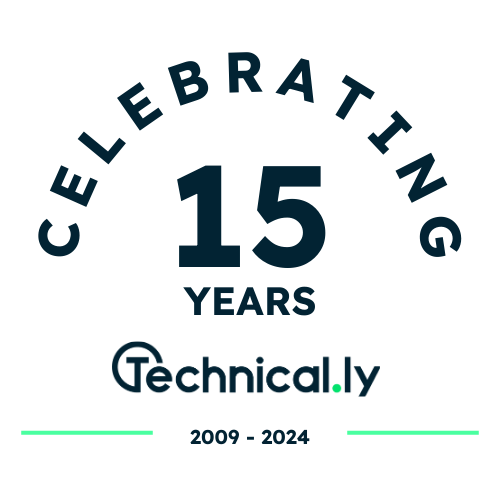Fifteen years ago, after my stint as CTO in Thailand, I returned to Pittsburgh, a city brimming with untapped technological potential yet constrained by its internal dynamics.
My shift from a seasoned software engineer to the founder of Meter Feeder was fraught with challenges. It was a journey navigating through a tech ecosystem resistant to change — a reflection of Pittsburgh’s own struggle to evolve.
‘That’s the way we’ve always done it’
Upon my return, despite a robust background, my expertise was often sidelined. This experience is emblematic of a broader issue within our tech community: the undervaluing of seasoned insight in favor of “that’s the way we’ve always done it.” As I embarked on the entrepreneurial path, I was advised to forsake all for my startup — a perilous proposition that underscored the disconnect between the delusions of the financially well-off and its stark realities.
The evolution of Pittsburgh’s tech scene has been stagnant. Despite the presence of individuals with the best intentions, the ecosystem’s growth is stymied by those who seek self-glorification rather than substantive progress. This imbalance has left Pittsburgh off the list in the Biden-Harris administration’s recent tech hub designations — a missed opportunity for recognition, capital, and development.
In Pittsburgh’s startup support network, Ascender stands out as a notable exception among non-profits, genuinely aiding entrepreneurs with valuable resources. However, the broader ecosystem is often marred by individuals in positions of influence who prioritize personal gain over the genuine success of emerging startups.
To truly foster innovation and growth, there’s a pressing need to realign the incentives of tech and investment organizations with the successes of the startups they purport to support. This means ensuring that the financial and reputational gains of these entities are directly tied to the tangible achievements of the entrepreneurs they assist, creating a mutually beneficial relationship that propels the entire community forward.
These challenges are compounded by power dynamics favoring the affluent, as underscored by a recent conversation I had with well-off individuals advocating for attracting more wealthy people at the expense of community inclusiveness. This absurd discussion leaves me concerned that I could be writing the very same article 15 years from now.
A Pittsburgh paradox
Despite the myriad hurdles present, Pittsburgh undeniably provides a fertile ground for the initial stages of startup development. Its cost-effectiveness is unparalleled, allowing entrepreneurs to stretch limited resources further than in most metropolitan areas. This financial leniency is a boon for innovators, affording them the opportunity to experiment, develop, and refine a minimum viable product without the looming pressure of exorbitant overheads. The city’s rich community of tech enthusiasts offer additional support, making it an ideal place to bring nascent ideas to life.
However, this nurturing environment presents a paradox.
While Pittsburgh excels at offering a cradle for startups to take their first steps, it markedly falls short as a platform for scaling those ventures into sustainable businesses. The local ecosystem, though vibrant in grassroots creativity, lacks the infrastructure, capital investment, and network density that are critical for startups to transition from survival to growth phase. There’s a discernible gap in the availability of growth-stage funding, mentorship for scaling businesses, and access to a wider network of global markets.
What needs to change
For a transformative change in the tech scene, we must shift from a reliance on nonprofits and pitch competition scraps, to a culture of investment that genuinely values results. It’s crucial for organizations and investors in Pittsburgh to meet the same standards of accountability and achievement expected of the entrepreneurs they mentor.
For new founders embarking on their entrepreneurial path, forging connections with seasoned founders is invaluable. Engaging with experienced entrepreneurs, both within Pittsburgh and beyond, can provide critical insights, mentorship, and networking opportunities that are essential for navigating the complexities of growing a startup.
Looking forward, my hope is for Pittsburgh to serve as a model for supporting startups, particularly those led by underrepresented founders. The challenges I’ve faced should not be the norm but rather a call to action for creating a more inclusive and supportive tech ecosystem. If my experiences as a seasoned professional included encountering such barriers, it raises critical questions about the accessibility of support for others.
Pittsburgh has the potential to be a leading tech hub, but this requires highlighting and supporting those who are actively shaping its future. Echoing Andrew Carnegie’s “My heart is in the work,” we must champion the innovators and entrepreneurs dedicating themselves to their projects. Creating an environment that values hard work and creativity is essential for fostering innovation and diversity. By doing so, Pittsburgh can transform into a place where every entrepreneur has the opportunity to thrive.

In February 2009, Technical.ly published our first article. Fifteen years later, we're still here — but a lot has changed. We're celebrating our anniversary with a look back, and a look forward.
Join our growing Slack community
Join 5,000 tech professionals and entrepreneurs in our community Slack today!
Donate to the Journalism Fund
Your support powers our independent journalism. Unlike most business-media outlets, we don’t have a paywall. Instead, we count on your personal and organizational contributions.

Comcast introduces ultra-low lag Xfinity internet that boosts experiences with Meta, NVIDIA and Valve

This Week in Jobs: Add these 26 tech career opportunities to your vision board

Regional unions are shaping up to be a deciding force in Pittsburgh's mayoral race — and more



